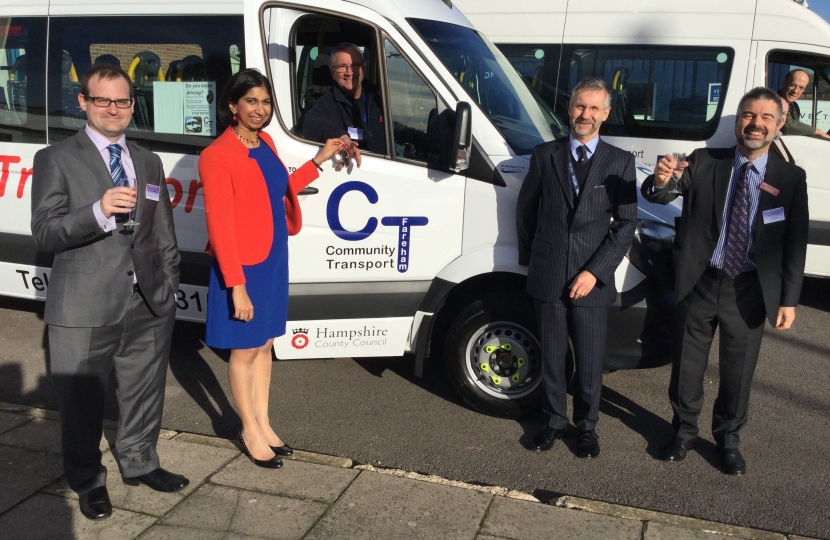
The Department for Transport (DfT) has released details on its next steps following a consultation on community transport permits.
In today’s letter, the Transport Minister Jesse Norman said: "[with] the exception of a small number of large operators who may in effect be genuinely competing on commercial terms with commercial bus operators, community transport operators should not be affected by future clarification of law. I can assure you that the concerns from local authorities and community transport operators have been heard loud and clear".
DfT will now issue a summary response to the consultation in the coming months, presenting emerging findings and what Fareham Borough Council and other local authorities can expect. Regarding the consultation, Ms Norman said: "we have an obligation to the sector to consider the responses of the consultation carefully, and to spend time analysing each and every letter and email received. These in turn will form part of our detailed consideration of the impacts of any changes to the regulatory regime."
Local authorities are being urged by the Government not to withhold community transport contracts prematurely, but to wait for Government guidance, and where in doubt to contact officials at DfT.
I wrote to Ms Norman earlier this year about the impact the changes would have on a community transport operator, Dial-a-Ride, which works across Fareham and Gosport – providing services to the elderly, disabled and community groups on a not-for-profit basis.
We must recognise the contribution of the community transport sector, in the services it provides to our communities. Today’s letter is a good indication of the Government’s approach, which is to listen to the consultation contributions, protect our community transport operators and provide fair clarity in law for the wider sector. Community Transport operators, like Dial-a-Ride in Fareham, provide a vital service for the elderly, isolated and disabled. This philanthropic spirit must be protected.
Background:
Since 1985, all community transport groups that are operating on a not-for-profit basis have been able to apply for permits to carry passengers in a bus or minibus without first holding the Public Service Vehicle operator’s licence (PSV licence) that would otherwise be required.
Concerns have recently been raised that some community transport operators that use permits are competing with commercial operators, which are required to hold a PSV licence. The Government subsequently launched a consultation earlier this year on how to clarify domestic law, Section 19 and 22 permits, and guidance to ensure fair competition for commercial contracts and greater clarity for operators as to their legal obligations.
Two transport operators, one a community transport group using a permit and the other a commercial operator, could be subject to very different treatments in law. Despite similarities between the two operators, the community transport group vehicles would be subject to less stringent MOT tests and could be driven by less qualified drivers. This disparity has become the subject of potential legal action and hence the clarification of the law surrounding permits.
